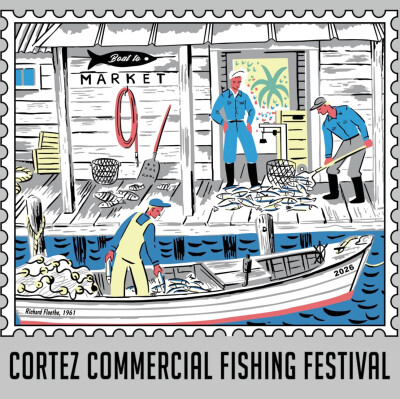Get in on the act
Any time we cover a commercial fishing reality show, we risk getting caught up in the hype. Some folks will love it, and some will roll their eyes, balking at the lack of reality in so-called reality programming. Whether or not you like the shows, bringing the lives of commercial fishermen into the living rooms of mainstream America is a good thing.
The United States imports 92 percent of the seafood consumed in this country. What's to keep that number from rising except consumer education? The more people feel like they know a fisherman or a fishery (from television or otherwise), the more likely they are to buy American fish. (And if fishery and food advocate Monique Coombs has her way — see page 6 — we will soon better understand how to tap into resources that can help fishermen run businesses and deliver their catch to consumers seeking local fish.) Read more about the rod and reelers behind National Geographic's "Wicked Tuna" on page 20.
In the coming months, National Fisherman and the Center for Sustainable Fisheries will be traveling to a venue near you, kicking off a series of listening sessions on Tuesday, Feb. 11, at the Seattle Renaissance Hotel.
Magnuson-Stevens reauthorization is coming. Our goal is to gather the voices of the industry to promote changes to the act that will improve fishery management for the better of the industry, the country and the consumer.
Fishery management should not be pigeonholed as merely counting fish (though this task sometimes proves arduous enough). That would be called fish management. The successful management of a fishery must take a more holistic approach by considering the effects of policy change on the communities, businesses and people, as well as the biomass.
As we move around the country, we hope to hear from as many fishery stakeholders as possible. Dr. Brian Rothschild, Montgomery Charter Professor Emeritus of the University of Massachusetts School for Marine Science and Technology and the president of the Center for Sustainable Fisheries, will introduce each session with some jumping off points. Brian has worked in U.S. fishery management all over the country. I believe he has critical insights to very basic — and fixable — problems with the way we manage our fisheries. For example, when we focus on habitat, we look at the environment necessary for adult fish, but not ideal conditions for eggs and larvae. We are focusing on the chickens and not the eggs. Can we change the federal mandate so that it truly promotes healthy and sustainable fisheries? I believe we can, but only if we commit to standing together. So let's find our common ground.
As Jerry McCune writes in Northern Lights on page 5, getting involved in fishery management is the only way to ensure your own future in fishing. This is your opportunity to be heard at the federal level. I hope to see you soon. In the meantime, please visit www.nationalfisherman.com/magnuson for more information.
— Jessica Hathaway






